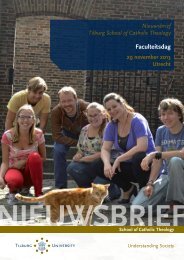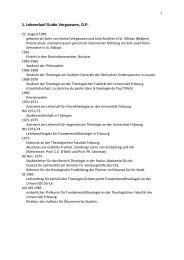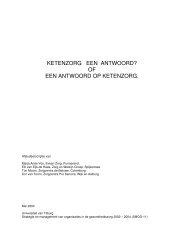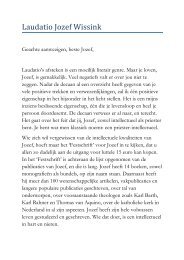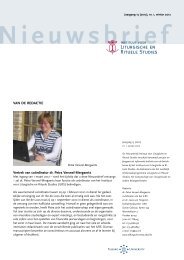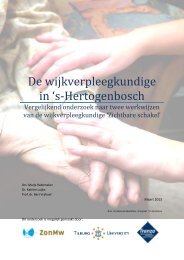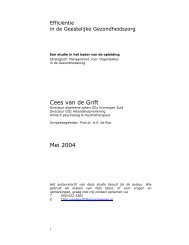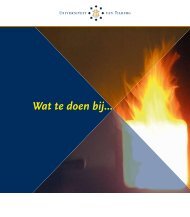Here - Tilburg University
Here - Tilburg University
Here - Tilburg University
Create successful ePaper yourself
Turn your PDF publications into a flip-book with our unique Google optimized e-Paper software.
Author and presenter<br />
Koppenol-Gonzalez, Gabriela; Dept. Methodology and Statistics, <strong>Tilburg</strong><br />
School of Social and Behavioral Sciences<br />
Title<br />
Latent Class Analysis:<br />
Understanding planning ability measured by the Tower of London:<br />
Identifying and characterizing cognitive strategies.<br />
Abstract<br />
The Tower of London (TOL) is a widely used instrument for assessing<br />
planning ability. People may adopt different strategies when confronted with a<br />
TOL problem. For instance, some people try to solve the problems by adopting a<br />
trial-and-error strategy, whereas others try to look ahead and think through<br />
every move before actually making the first one. It is obvious that some<br />
cognitive strategies are more efficient than others and that strategy<br />
effectiveness may interact with specific properties of given problems to be<br />
solved.<br />
TOL problem properties are directly observable, yet the cognitive strategy<br />
that people use to solve the problems are not. Hence to study this, a technique<br />
is needed that indirectly infers these cognitive strategies based upon the<br />
available data. In this study, latent class analysis was used to identify and<br />
characterize the most prominent cognitive strategies used when solving TOL-<br />
problems.<br />
The results suggest that four strategy groups can be distinguished which differ<br />
with respect to preplanning time, effects of problem properties on performance<br />
and overall performance. The findings offer an explanation for inconsistent<br />
findings in the literature on the relation between TOL problem solving and<br />
cognitive inhibition.




